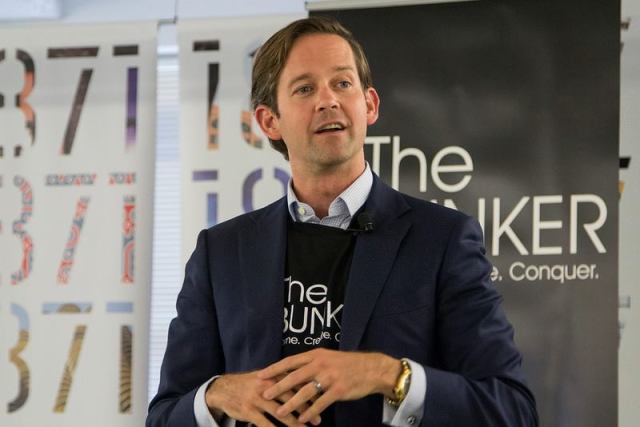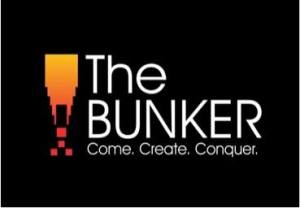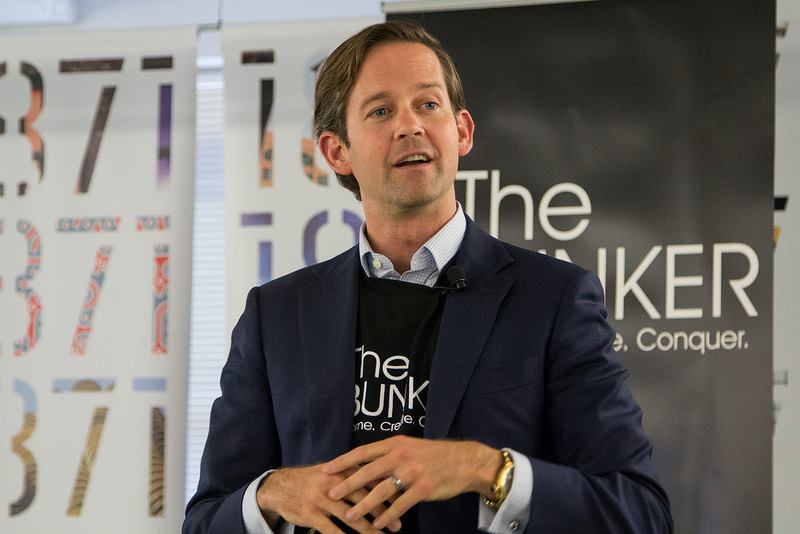BTN.com staff, September 27, 2014

A series that covers the true revolutionaries, Game Changers explores how innovators from Big Ten universities - students, faculty and alums - are inventing or reinventing their chosen fields.
He could have just accepted his degree from Northwestern University and joined the workforce 14 years ago. But he didn?t.
He could have completed his commitment to the U.S. Navy after serving during Operation Iraqi Freedom aboard the USS Bunker Hill (CG-52) and joined any major corporation in Chicago. But he didn?t.
Todd Connor saw an opportunity to serve his country after graduating from Northwestern. And after working in a number of roles following his ?graduation? from the Navy, he saw an opportunity to serve his fellow veterans.
Now he?s about to change the business landscape for them.

Connor wears multiple hats: a Northwestern alum, co-chair of the 15-year reunion, a successful businessman, an environmentalist and a Navy veteran. In particular, his affinity with Northwestern framed Connor?s vision for a veteran?s ?alumni? association. But there?s more to his vision than networking. He?s going to help veteran entrepreneurs make an impact.
Connor is the CEO of The Bunker Incubator, a program built by veteran entrepreneurs, for veteran entrepreneurs. The Bunker encourages existing veteran-owned start-ups and aspiring entrepreneurs to make an impact on the business world through their ideas, hard work and strategy.
?I?m trying to do what universities do for their alumni [with The Bunker Incubator],? Connor explained. ?It?s an alumni association. You?re proud of your undergraduate experience, but you don?t necessarily get together and only talk about the undergraduate experience. You get together and do things, network. You show up because you want to be there. The affiliation with the university sets a high bar for the experience. And, by the way, if you need help, you can get that too.?
The Bunker was formally launched at 1871, a new hub for digital startups in Chicago, at the end of July. The kickoff event in August was attended by 315 interested veterans and business leaders.
?It was young, it was high energy ? it felt like an amazing reunion - but people didn?t know each other,? Connor said. ?People came early and stayed late. I saw connections happening all over the room and had people coming to me saying ?This is so needed.? There were institutions that have been waiting in the wings for the veteran community to tee something up. Elected officials, wealthy philanthropists and other organizations were able to come together and see what?s going on.
?The highest compliments came from veterans, though,? he added. ?I?ve been to a lot of symposiums that were civilian led, talking about the need to help veterans. But that?s a civilian conversation. This was a high-energy veteran conversation led by veterans.?
 Within a couple of months, 51 veteran-owned, technology-enabled businesses applied to be part of the inaugural class. The Bunker accepted 14 of those companies and, in November, the doors will open on a revolutionary model for business acceleration in the veteran community in Chicago.
Within a couple of months, 51 veteran-owned, technology-enabled businesses applied to be part of the inaugural class. The Bunker accepted 14 of those companies and, in November, the doors will open on a revolutionary model for business acceleration in the veteran community in Chicago.
?Part of the opportunity is to run a veteran organization that is really strategic and focused on building capacity among younger veterans to become entrepreneurs, and then letting them create wealth for themselves, create businesses, hire employees, hire veterans and then translate the impact back on the veteran community,? he explained. ?Also, there are veteran-owned companies that have gone out and received some early validation for what they?re doing and have some customers, but they?re looking at The Bunker as a platform to really accelerate the growth of their company.?
The first class will represent a diverse group of industries and sectors. Each business has its own goals: Some might want to attract investors or venture capital firms, while others could just be looking to grow revenue and create more jobs.
To illustrate what he?s trying to accomplish, Connor shared the unique circumstances of one of these participating organizations: a roofing-contractor company, founded by a Navy veteran with limited physical mobility who does all of her work - pricing jobs, bidding on contracts and scheduling - from an iPad.
?This is a service-disabled veteran female-owned business who wants to grow from 14 freelance contactors to something more substantial, and she?s in a great position to do it,? Connor said. ?She is the kind of business I like to hold up because what she?s doing wouldn?t be interesting to a [venture capital company] or an investor - she isn?t creating the next Facebook. But she has a solid business that she can grow from 14 to 100 employees within a year, and that?s exciting for us. It?s creating jobs, creating revenue and helping her realize her dream.?
Connor isn?t limiting The Bunker to Chicago. He said they?re already working on putting Bunkers in six other cities across the country within 12 months. There are individual veteran leaders in other cities that see what?s happening in Chicago, and feel something like it is needed in Los Angeles, Kansas City or Washington, D.C.
And Connor?s vision goes beyond even that. The Bunker is also coordinating The Council of 100, which will bring together veteran business leaders from major companies all over Chicago. Veteran employees from large corporations like Baxter, Accenture, Goldman Sachs and United Airlines will get together to talk about corporate veteran impact.
?[The Council] is going to be a powerhouse,? he said. ?This is going to be a high-performing network of veterans that will produce thought leadership and strong professional networking. This group will be the engine that helps the Bunker and the start-up businesses and entrepreneurial community stay connected with the veteran professional community inside corporations. Our aspiration is that this group will define the veteran conversation.?
As with many examples of innovative breakthroughs, Connor?s initial idea for The Bunker was inspired by a sudden moment of insight.
?I had an epiphany,? he said. ?There was a moment when I was talking to another veteran who, like me, was busy in the [Chicago] Loop doing things in business. I had this thought that I?m not the prototypical veteran. I thought that I don?t feel the most qualified to stand up and create a veterans organization. But it dawned on me that all veterans feel the same way. We are the veteran population that we?re trying to mobilize. It?s all of us who have successfully transitioned who aren?t raising our hands saying we need help, but who can be leveraged to make an impact on the veteran community.?
Want to learn more? Follow The Bunker on Facebook and Twitter.
[display-posts tag="livebig-northwestern" posts_per_page="5"]







